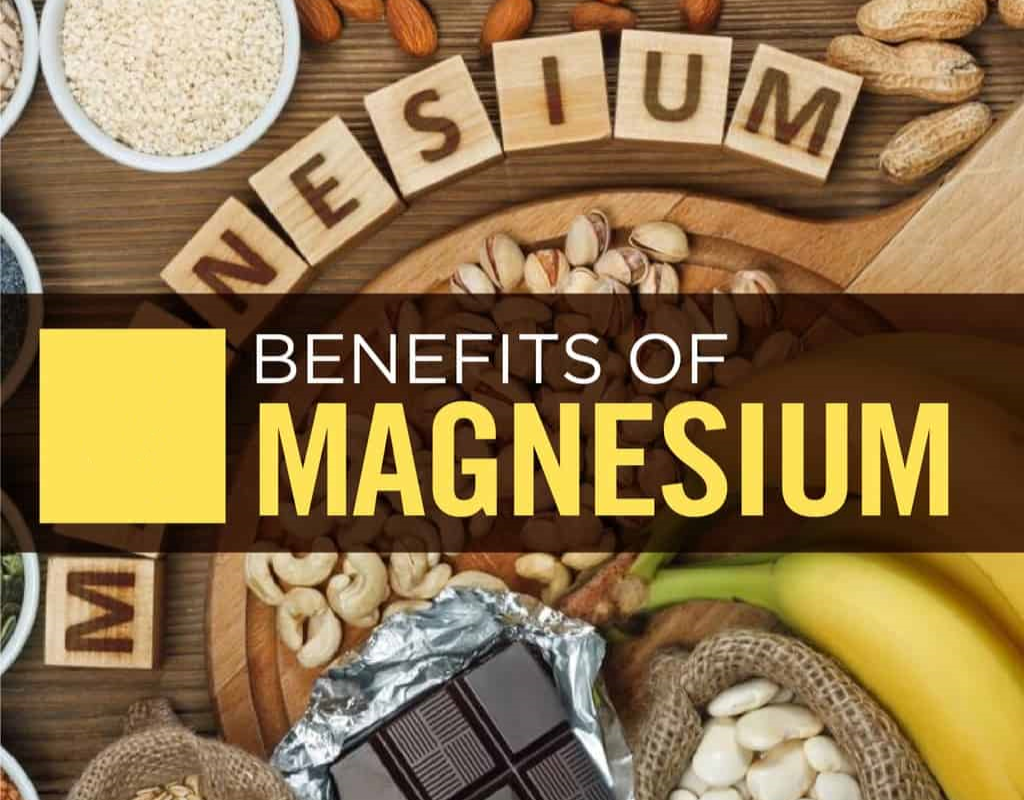
Unveiling the Mighty Magnesium: A Deep Dive into Its Benefits and Uses
By: Saika J
Magnesium, often referred to as the “relaxation mineral,” plays a crucial role in maintaining optimal health and well-being. It’s so vital that about 60% to 70% of the body’s magnesium resides within our bones, acting as the structural foundation for our skeletal system. The remaining 30% is distributed across muscles, soft tissues, and fluids, where it orchestrates a symphony of over 600 biochemical reactions.
Essential for Energy and Beyond:
One of the most critical functions of magnesium is its role in energy production. It acts as a catalyst, converting the food we consume into usable cellular energy, allowing our bodies to perform various tasks throughout the day. Beyond energy production, magnesium is also actively involved in:
- Protein synthesis: It plays a crucial role in the creation of proteins from amino acids, the building blocks of life.
- DNA and RNA maintenance: It supports the creation and repair of DNA and RNA, the blueprints for our genetic makeup.
- Muscle function: Magnesium is essential for proper muscle contraction and relaxation, influencing everything from smooth muscle movement in our digestive system to the coordinated movements of skeletal muscles during exercise.
- Nervous system regulation: It helps regulate neurotransmitters, the chemical messengers that relay information within the brain and nervous system, contributing to healthy nerve function and mood regulation.
While magnesium is naturally present in a variety of foods, it’s not uncommon for individuals to fall short of their daily requirements. This can be attributed to various factors, including:
- Dietary choices: Processed foods typically contain low levels of magnesium, while whole, unprocessed foods like fruits, vegetables, nuts, and seeds are richer sources.
- Soil depletion: The magnesium content of soil has been declining over time, and this depletion is reflected in the crops grown in it.
- Certain health conditions: Medical conditions like diabetes, digestive disorders, and chronic diarrhea can also lead to magnesium deficiencies.
A Spectrum of Magnesium Supplements:
Fortunately, various forms of magnesium supplements are available to help bridge the gap and ensure adequate intake. While they all boast the benefits of this essential mineral, each type has its unique characteristics and potential uses. Here’s a closer look at some common forms of magnesium:
1. Magnesium Citrate: This readily soluble form is popular for treating constipation due to its gentle laxative effect. However, it may not be suitable for individuals with sensitive digestive systems due to its potential for causing diarrhea.
2. Magnesium Glycinate: This gentle and highly absorbable form is often preferred for individuals seeking benefits like muscle relaxation, stress reduction, and improved sleep. It may also hold potential in managing mental health concerns like anxiety and depression, but further research is needed.
3. Magnesium Oxide: This inexpensive form is not readily absorbed by the body and is primarily used for treating occasional heartburn and indigestion. However, it is not recommended for addressing low magnesium levels.
4. Magnesium Chloride: This versatile form can be taken orally or applied topically. Oral supplementation with magnesium chloride benefits individuals seeking to raise their magnesium levels, while topical application in baths or oils can offer relief from muscle soreness and joint pain.
5. Magnesium Sulfate: Commonly known as Epsom salt, this readily soluble form is typically used intravenously to address severe magnesium deficiencies. However, it can also be used as a bath soak to promote relaxation and muscle recovery.
6. Magnesium Lactate: Primarily used as a food additive, this form is easily absorbed by the digestive system and may offer benefits for gut health.
7. Magnesium L-threonate: This unique form shows promise in supporting brain health and cognitive function. Emerging research suggests potential benefits in managing age-related memory decline, Alzheimer’s disease, and depression. However, more research is required to solidify these claims.
8. Magnesium Taurate: This combination of magnesium and the amino acid taurine holds potential in regulating blood sugar levels, maintaining healthy blood pressure, and promoting relaxation and sleep.
9. Magnesium Malate: This form is well-absorbed and may be beneficial for individuals experiencing muscle fatigue and pain, particularly those with conditions like fibromyalgia and chronic fatigue syndrome.
10. Magnesium Orotate: This form combines magnesium with orotic acid, a substance involved in energy production within heart muscle and blood vessel tissues. While preliminary research suggests potential benefits for heart health, further studies are needed to confirm its efficacy.
Choosing the Right Form:
The most suitable form of magnesium for you depends on your individual needs and health situation. Consulting with a healthcare professional before starting any new supplement, including magnesium, can help you determine the appropriate dosage and form based on your specific dietary habits and health concerns.
Embracing a Magnesium-Rich Lifestyle:
While supplements can be beneficial, incorporating magnesium-rich foods into your diet remains a crucial strategy for optimal health. Here are some excellent sources to consider:
Fruits and Vegetables:
- Dark leafy greens: Kale, spinach, Swiss chard, and collard greens are nutritional powerhouses, boasting significant amounts of magnesium alongside other essential vitamins and minerals.
- Avocados: This creamy fruit is not only rich in healthy fats but also provides a good amount of magnesium per serving.
- Bananas: A classic potassium source, bananas also offer a decent amount of magnesium, making them a convenient and healthy snack option.
- Dried fruits: Figs, dates, and raisins are concentrated sources of various nutrients, including magnesium. However, it’s important to be mindful of portion sizes due to their higher sugar content.
Nuts and Seeds:
- Almonds: These versatile nuts are a great source of magnesium, fiber, healthy fats, and protein. Enjoy them raw, roasted, or incorporated into various dishes.
- Cashews: Packed with magnesium, fiber, and healthy fats, cashews can be a satisfying and nutritious snack or addition to meals.
- Pumpkin seeds: These nutrient-dense seeds boast impressive levels of magnesium, zinc, and other beneficial nutrients. Enjoy them by the handful, sprinkle them on salads, or bake them for a crunchy snack.
- Chia seeds: These tiny powerhouses are loaded with fiber, healthy fats, and a good amount of magnesium, making them a valuable addition to smoothies, yogurt, or oatmeal.
Whole Grains:
- Brown rice: A rich source of fiber and complex carbohydrates, brown rice also provides a decent amount of magnesium per serving.
- Quinoa: This gluten-free pseudo-grain is a complete protein source, meaning it contains all nine essential amino acids. It also offers a good dose of magnesium alongside other crucial nutrients.
- Oats: A heart-healthy choice, oats are a great source of fiber and offer a moderate amount of magnesium, making them a perfect addition to breakfast or a healthy snack.
Other Sources:
- Dark chocolate: While not the most health-conscious option, dark chocolate with a high cacao content (70% or above) can provide a significant dose of magnesium. However, it’s crucial to consume it in moderation due to its sugar and calorie content.
- Legumes: Beans, lentils, and chickpeas are excellent sources of plant-based protein and fiber, also offering a decent amount of magnesium per serving.
Beyond the Plate:
In addition to dietary changes, incorporating magnesium-rich practices into your daily routine can further enhance your overall well-being:
- Prioritize stress management: Chronic stress can deplete magnesium levels, making relaxation techniques like meditation, deep breathing, and yoga valuable tools.
- Ensure adequate sleep: Aim for 7-8 hours of quality sleep each night, as this allows your body to replenish magnesium stores and promote optimal health.
- Maintain a healthy weight: Obesity can increase the risk of magnesium deficiency, so maintaining a healthy weight through a balanced diet and regular physical activity is crucial.
Remember, consistency is key! By incorporating these strategies into your lifestyle, you can optimize your magnesium levels and unlock the diverse benefits this essential mineral offers for a healthier and happier you.
Disclaimer: The information provided in this article is for educational purposes only and should not be construed as medical advice. Always consult with a healthcare professional before starting any new supplements or making significant changes to your dietary habits. They can guide you based on your individual needs and health conditions.

